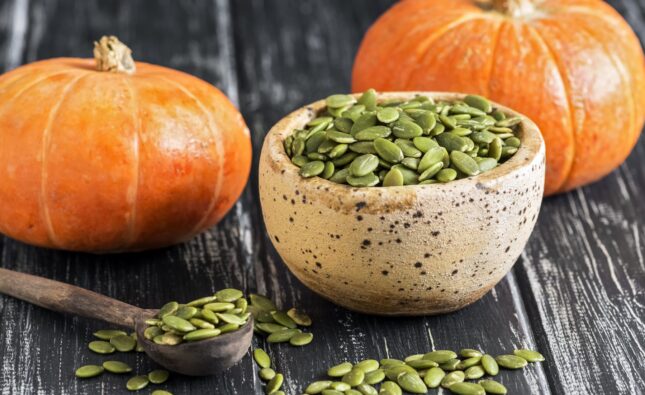Health Benefits of Makhana (Fox Nuts): Nourishing Superfood & Its Nutrient Value
Makhana, also known as Fox Nuts or Lotus Seeds, is a highly regarded and ancient superfood that has been a staple in Asian cultures for centuries. Derived from the seeds of the lotus flower, Makhana is primarily cultivated in India and other Southeast Asian countries. The name “Fox Nuts” comes from the fox-like appearance of the seeds. These small, round, white seeds are typically harvested from the ponds or lakes where lotus plants thrive.
Makhana has not only been valued for its pleasant taste and crunchy texture but also for its exceptional nutritional content. The seeds are packed with essential nutrients, making them a significant source of nourishment in traditional cuisines and Ayurvedic practices. They are rich in protein, carbohydrates, fiber, and an array of essential minerals such as potassium, magnesium, and phosphorus. Additionally, Makhana contains vitamins like thiamine (B1) and folate, which play crucial roles in maintaining overall health.
One of the most significant advantages of Makhana is its weight management properties. With its low-calorie content and high fiber, Makhana helps keep individuals feeling full for more extended periods, reducing the temptation to snack on unhealthy, high-calorie foods. The slow-release carbohydrates in Makhana also aid in stabilizing blood sugar levels, preventing sudden spikes and crashes in energy.
Moreover, Makhana is a rich source of antioxidants, including flavonoids, polyphenols, and kaempferol. These antioxidants play a vital role in combating harmful free radicals in the body, thereby protecting cells from oxidative stress and reducing the risk of chronic diseases, such as cancer and cardiovascular disorders.
The benefits of Makhana extend to heart health as well. Its high magnesium content helps maintain normal blood pressure, while its low sodium content supports the prevention of hypertension and related cardiovascular complications. Makhana’s impressive nutritional profile also contributes to better digestion and improved gut health.
The significant fiber content aids in preventing constipation and promoting regular bowel movements, enhancing overall digestive function. Additionally, Makhana is considered a diabetes-friendly snack due to its low glycemic index and slow-release carbohydrates. For individuals with diabetes, Makhana offers a healthier option that does not cause rapid spikes in blood glucose levels.
Incorporating Makhana into one’s diet is easy and versatile. The seeds can be enjoyed in various ways, including roasted, popped, or used as an ingredient in dishes like curries, soups, and desserts. Packed with essential nutrients, Makhana offers a unique combination of taste and wellness.
Let’s explore the remarkable health benefits of Makhana:
1. High Nutritional Value:
Makhana is a powerhouse of nutrition. These gluten-free seeds are abundant in protein, carbohydrates, fibre, and a variety of essential minerals like potassium, magnesium, and phosphorus. They also contain vitamins like B-complex vitamins, especially thiamine, and folate, which are essential for overall health.
2. Supports Weight Management:
For those aiming to manage their weight, Makhana is an excellent addition to their diet. The low-calorie content and high fibre in Makhana help keep you feeling full for longer periods, reducing the urge to snack on unhealthy, calorie-dense foods. The slow-release carbohydrates also contribute to stable blood sugar levels, preventing sudden spikes and crashes in energy.
3. Rich in Antioxidants:
Makhana is a potent source of antioxidants like flavonoids, polyphenols, and kaempferol. These antioxidants help neutralize harmful free radicals in the body, protecting cells from oxidative stress and reducing the risk of chronic diseases such as cancer and cardiovascular disorders.
4. Heart Health:
The high magnesium and low sodium content in Makhana contribute to promoting heart health. Magnesium helps maintain normal blood pressure and supports heart function, while the low sodium content aids in reducing the risk of hypertension and associated cardiovascular complications.
5. Improves Digestion:
The rich fiber content in Makhana aids in promoting better digestion. It helps prevent constipation, maintains gut health, and supports a healthy digestive system. Regular consumption of Makhana can alleviate digestive issues and improve bowel movements.
6. Diabetes Management:
Makhana is considered a diabetes-friendly snack due to its low glycemic index and slow-release carbohydrates. These factors help regulate blood sugar levels, making it an excellent option for people with diabetes as it doesn’t cause rapid spikes in glucose levels.
7. Boosts Bone Health:
The presence of minerals like calcium, phosphorus, and magnesium in Makhana contributes to improved bone health and helps prevent conditions like osteoporosis. Regular consumption can promote strong and healthy bones, especially when combined with a balanced diet.
8. Supports Nervous System:
The abundance of thiamine (vitamin B1) in Makhana plays a crucial role in maintaining a healthy nervous system. Thiamine is essential for the proper functioning of nerve cells and can help prevent conditions like neuropathy.
9. Aids in Stress Management:
Makhana contains an amino acid called tryptophan, which is a precursor to serotonin, known as the “happy hormone.” Serotonin helps regulate mood, reducing stress, anxiety, and promoting a sense of well-being.
10. Supports Healthy Skin and Hair:
The presence of essential minerals, antioxidants, and protein in Makhana contributes to healthier skin and hair. These nutrients help repair damaged tissues, promote collagen production, and add shine to hair.
Incorporating Makhana into Your Diet:
Makhana can be enjoyed in various ways – roasted, popped, or as an ingredient in dishes like curries, soups, and desserts. Roasted Makhana with a dash of seasoning can serve as a nutritious and delicious snack option.
Nutrient Value of Makhana
Makhana, also known as Fox Nuts or Lotus Seeds, is a highly nutritious superfood that offers an impressive array of essential nutrients. The following are the approximate nutrient values per 100 grams of dried Makhana:
1. Calories:
Around 350 to 400 calories (may vary based on the cooking method and seasoning).
2. Carbohydrates:
Approximately 75 to 80 grams. Makhana is primarily composed of carbohydrates, including starch, dietary fiber, and natural sugars.
3. Protein:
About 9 to 10 grams. Makhana is a good source of plant-based protein, making it a valuable option for vegetarians and vegans.
4. Fat:
Roughly 0.1 to 0.5 grams. Makhana is incredibly low in fat, making it a suitable snack for those watching their fat intake.
5. Fiber:
Around 14 to 15 grams. The high fiber content in Makhana supports digestive health and helps maintain regular bowel movements.
6. Potassium:
Approximately 300 to 350 milligrams. Potassium is essential for maintaining proper muscle function and supporting heart health.
7. Magnesium:
Roughly 100 to 150 milligrams. Magnesium is vital for various bodily functions, including nerve function and bone health.
8. Phosphorus:
About 250 to 300 milligrams. Phosphorus plays a crucial role in maintaining strong bones and teeth.
9. Calcium:
Approximately 60 to 70 milligrams. Calcium is essential for bone health, muscle function, and nerve transmission.
10. Iron:
Around 1 to 2 milligrams. Iron is vital for the production of hemoglobin and oxygen transport in the blood.
11. Zinc:
Roughly 0.5 to 1 milligram. Zinc supports the immune system and various enzymatic reactions in the body.
12. Folate (Vitamin B9):
About 20 to 30 micrograms. Folate is essential for DNA synthesis and plays a crucial role in cell division and growth.
13. Thiamine (Vitamin B1):
Approximately 0.15 to 0.2 milligrams. Thiamine is essential for energy metabolism and nerve function.
14. Riboflavin (Vitamin B2):
Roughly 0.1 to 0.2 milligrams. Riboflavin is involved in energy production and acts as an antioxidant.
15. Niacin (Vitamin B3):
Around 1 to 1.5 milligrams. Niacin is essential for energy metabolism and helps maintain healthy skin.
16. Vitamin E:
Approximately 1 to 2 milligrams. Vitamin E is a potent antioxidant that protects cells from oxidative damage.
17. Phytosterols:
Makhana contains phytosterols, which are plant compounds that may help lower cholesterol levels.

Fig: Makhana & Pomegranate Mixture in the Plate
Conclusion
Makhana is an incredibly healthy and versatile superfood that can be a valuable addition to your diet. Regular consumption of Makhana can contribute to overall health, providing a plethora of nutrients and promoting wellness in numerous ways. So, why not add this delightful and nourishing superfood to your daily routine and experience its extraordinary benefits!






